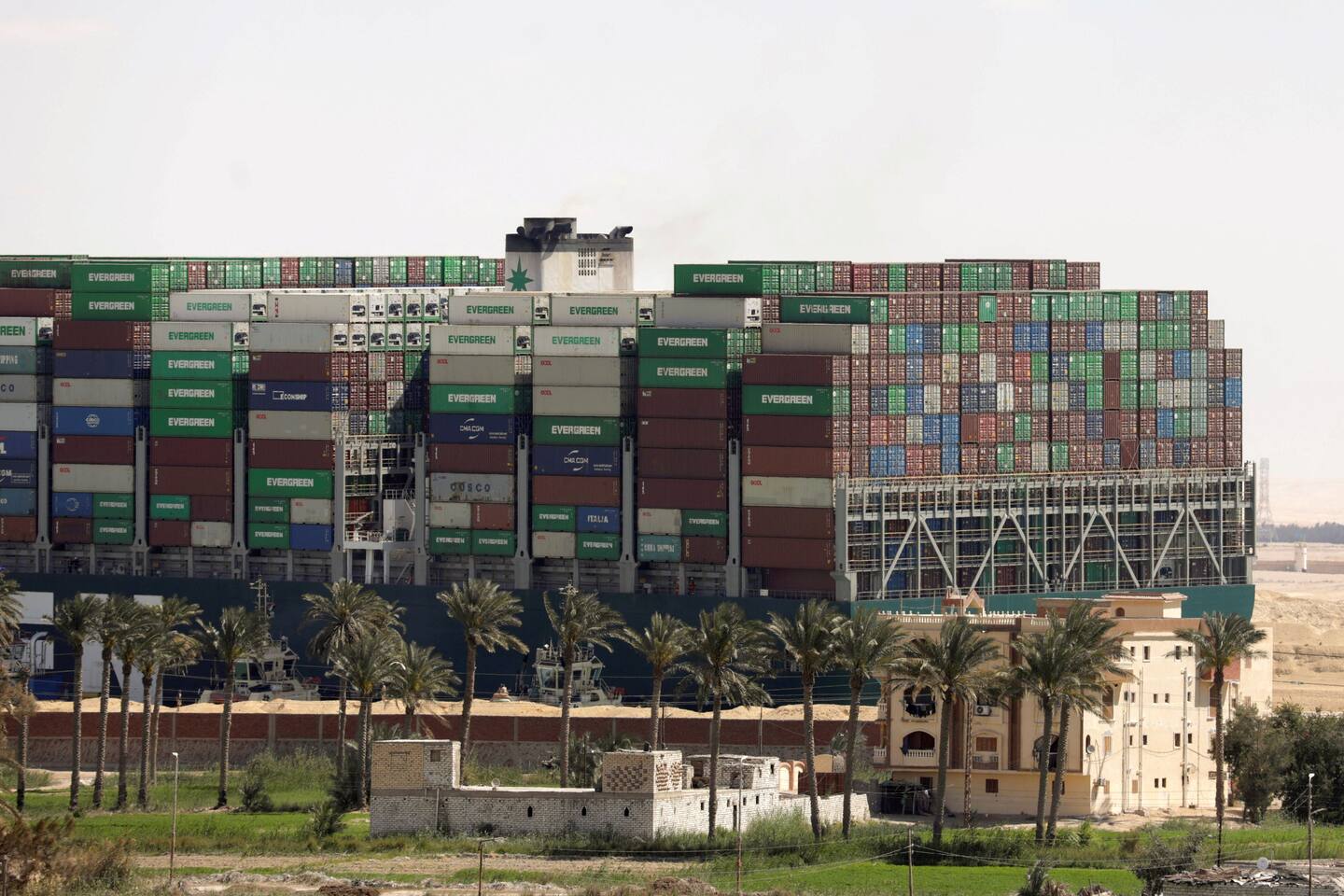The Suez Canal ship is free, but the shipping industry’s ‘humanitarian crisis’ isn’t over

The crisis in the canal forced the world’s attention on ships that despite their massive size are often all but invisible, suddenly making plain, and impossible to ignore, the extent to which global trade relies on vessels like the Ever Given and their crews, who predominantly come from developing nations.
“Hero is a strong word, but they really have kept society moving for the past 13 months,” said Stephen Cotton, the general secretary of the International Transport Workers’ Federation, which represents seafarers worldwide.
For many of the seafarers who found themselves stuck in the Suez Canal last week, the delays were a new source of stress that added to what has already been a difficult year. When countries shut their borders to prevent the spread of the coronavirus last March, hundreds of thousands of workers at sea were left stranded, unable to return home or even briefly set foot on shore when their ships arrived in port. Under international labor standards, crew are supposed to rotate off ships every 11 months to prevent dangerous levels of burnout, but many long ago hit that milestone and still have no idea when they might be able to disembark.
“Seafarers must not be forgotten as soon as this incident is over,” the U.K.-based International Chamber of Shipping said in a Monday statement after the Ever Given was freed.
Roughly 200,000 mariners worldwide are either unable to leave their ships or travel to ports to relieve crew members that have exceeded their contracts, according to the organization.
That has added new strain to what was already a taxing job: Seafarers must work long shifts, often staying up overnight to keep watch, while bunking in cramped quarters and having little to no contact with the outside world. In September, the Consumer Goods Forum pleaded with the United Nations for help, warning that well-intentioned travel restrictions had “inadvertently created a modern form of forced labour.”
Advocates for mariners have warned that high levels of crew fatigue is a safety issue, and that seafarers’ mental health is suffering. The International Seafarers’ Welfare and Assistance Network found that the number of reported suicides among seafarers roughly doubled over the past year, while warning that the true extent of the problem may be vastly understated.
“When someone goes overboard, there is always a question mark: Was it suicide or was it an accident?” executive director Robert Harris told Lloyd’s List last month. “I’ve been told by at least two shipping companies that sometimes it is suspected as suicide, but it is reported as ‘missing at sea’ because the family wouldn’t get a payout from the protection and indemnity club.”
It is not clear if crew exhaustion was a factor in the grounding of the Ever Given. The International Transport Workers’ Federation has determined that the 25 crew members — all Indian nationals — were not yet over-contract, and that all had been onboard for less than six months.
Still, the organization has called for an investigation that will examine whether larger systemic issues in the industry, such as crew fatigue, played a role. “We always worry that it’s very easy to blame seafarer error,” Cotton told The Washington Post. Rather than single out a culprit, “we want to understand what happened so we can make sure it doesn’t happen again.”
Abdulgani Serang, the general secretary for National Union of Seafarers of India, wrote on social media Saturday that he had been in touch with the crew, who he described as “fine but stressed out.”
The shipping industry uses the term “sea blindness” to describe the general public’s lack of awareness about the critical role seafarers and ocean networks play in global commerce. While the United Nations has designated ship crews as essential workers and urged other governments to do the same, that designation has led to little change, and many mariners still have no idea when they might be able to take a break or return home, more than a year into the pandemic.
Meanwhile, as coronavirus vaccines become available worldwide, people working at sea do not exactly have ready access to vaccination clinics or medical facilities. More than half the shipping industry’s workforce comes from developing nations, where vaccines are in short supply, Guy Platten, the secretary general for the U.K.-based International Chamber of Shipping, told The Post on Friday.
Such logistical challenges will continue to be an issue long after the traffic jam in the Suez Canal is unsnarled. Hopefully, Platten said, one takeaway of the Ever Given saga is that consumers will be more aware of the lengthy and arduous voyage that products take to get to their door, and “think about the seafarers who deliver those goods that we all take for granted.”






